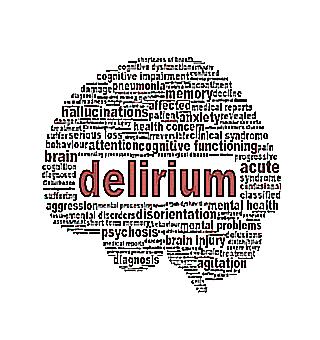Home >
Erectile Dysfunction >
Alcoholic delirium symptoms and treatment
Alcoholic delirium - symptoms and treatment

Diagnosis is based on symptoms. In a person with delirium tremens, it is important to exclude other pathological changes such as electrolyte disturbances, pancreatitis, and alcoholic hepatitis2.
In addition, delirium tremens must be distinguished from the following diseases:
- sepsis;
- uremia (severe manifestation of kidney failure);
- stroke;
- meningitis;
- encephalitis;
- Wernicke's encephalopathy;
- neuroleptic malignant syndrome;
- pheochromocytoma (benign tumor of the adrenal glands);
- toxicity of psychoactive substances such as amphetamine, hallucinogen, cocaine, heroin;
- electrolyte disorders - hypocalcemia and hypomagnesemia;
- thyrotoxicosis (excess thyroid hormone);
- cerebral hemorrhage;
- cerebral embolism;
- toxic ingestion or exposure to ethylene glycol;
- acute liver failure;
- diabetic ketoacidosis;
- brain abscess;
- hypoglycemia (low blood sugar)2224.
Intoxication accompanied by delirium usually corresponds to acute toxic encephalopathy caused by alcohol. In this case, both toxic encephalopathy (code G92) and alcohol-induced delirium (placed after G92) should be documented and coded, as well as the toxic effect code, which should be set first18. At the same time, delirium is considered as a symptom of the underlying disease of toxic encephalopathy.
Documentation of alcoholic encephalopathy alone results in the assignment of the code G31.2, which is reserved for degeneration of the nervous system such as alcoholic cerebellar or cerebral degeneration. It represents a chronic, persistent structural encephalopathy rather than an acute, reversible encephalopathic process. Therefore, it is necessary to document acute toxic encephalopathy caused by alcohol intoxication19.
The key features of alcohol-induced psychosis are delusions and hallucinations, but these must be distinguished from non-alcohol-related schizophrenia202122. However, alcohol consumption may precipitate psychotic episodes in patients with schizophrenia.
Other alcohol-related disorders typically occur directly with use: anxiety disorders, mood disorders, Sexual dysfunction, and sleep disturbances. If the patient is an alcohol abuser and has any of these disorders, the record should always clarify whether the conditions are related.
Anxiety disorders are numerous (eg, generalized anxiety, phobias, and panic disorder) and usually overlap. They share traits of excessive fear and anxiety and associated behavioral disturbances. Mood disorders include depression and other comorbid conditions that have complex DSM-5 definitions. Sexual dysfunction includes problems such as erectile dysfunction, sexual interest/desire disorders, and other significant disorders.
The DSM-5 identifies 10 sleep disorders or groups of disorders, some of which can be caused by alcohol, including insomnia, hypersomnia, and circadian rhythm disturbance. Other problems, such as narcolepsy or sleep apnea, are not related to alcohol.
Thus, the correct diagnosis and coding of alcoholic delirium is a rather complicated process. The ICD-10-CM (International Classification of Diseases, 10th Revision) code classification largely follows the DSM-5 definitions with very specific codes that combine types of alcohol dependence and alcohol-induced conditions.
Clinicians should determine whether a patient has mild, moderate, or severe alcohol dependence based on DSM-5 diagnostic criteria, and document any alcohol-related conditions. In the medical record, it is always necessary to explain whether the patient's condition is caused by alcohol dependence or not313233.
A shared understanding and basic knowledge of diagnostic standards and the relationship of these conditions contributes to accurate documentation, accurate coding, and quality of care.
Differential diagnosis of delirium tremens
Delirium tremens must be distinguished from delirium caused by other causes, such as medication or drugs. It should also be distinguished from the amental syndrome - clouding of consciousness in severe infectious diseases, poisoning and schizophrenia.
When to ask for help
See a psychiatrist if you experience symptoms of delirium: palpitations, high blood pressure, and hallucinations.



























